FRPT 2021 Committees
Organising Committee:

Marie Dutreix
Institut Curie, FranceOrganizer of the 1st FLASH Workshop
Marie Dutreix is a Biologist (Ph.D.), director of the laboratory at the Institut Curie, president of the “Société Française du Cancer” (2012-2017) and co-founder of the company “DNA Therapeutics” (bought by Onxeo in 2016). She is a specialist of genetic instability and biological effects of radiation. She developed new strategies to treat tumours resistant to radiotherapy/chemotherapy and discovered new DNA repair inhibitors (Dbait/AsiDNA). Her work extend from basic research on DNA repair mechanisms to clinical applications of the AsiDNA inhibitors and development of innovative protocols with the high-dose rate “FLASH” irradiation. She is co-director of the Institute of Nanotechnologies and Radiation based Therapies of the University Paris-Saclay, the GDR MI2B of CNRS, the Medico-scientific program of Institut Curie. She received numerous prizes the most recent being, the prize of the Academy of Science (2016). She was awarded “Chevalier de l’ordre National du Mérite” in 2013 and “Chevalier de l’ordre de la légion d’honneur” in 2017. 102 international publications, 12 patents.
Marie Dutreix
Institut Curie, FranceOrganizer of the 1st FLASH Workshop
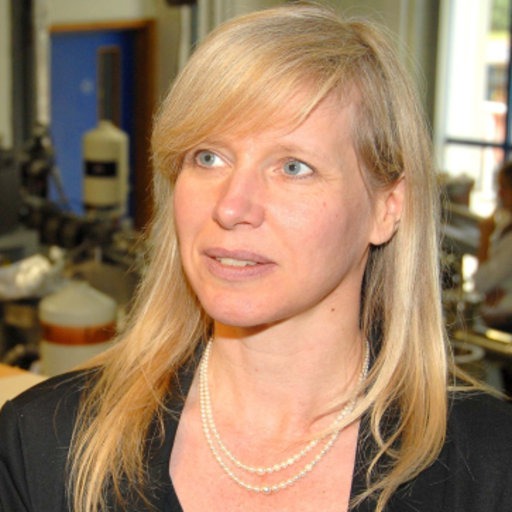
Karen Kirkby
University of Manchester and The Christie, UKCoordinator of INSPIRE
Professor Karen Kirkby was appointed to The Richard Rose Chair in Proton Therapy Physics in 2014, and leads the Manchester PBT Research Group. Karen has been involved in the study of ion beams for over 30 years.
Karen Kirkby
University of Manchester and The Christie, UKCoordinator of INSPIRE
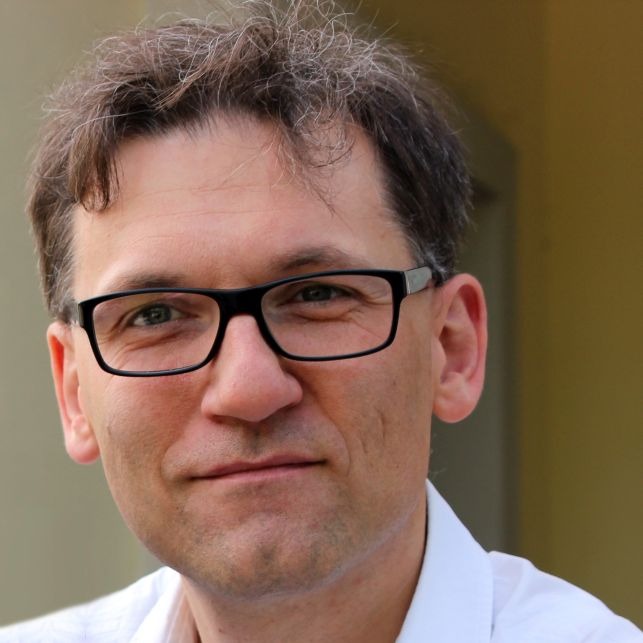
Andreas Schüller
PTB, GermanyCoordinator of UHDpulse
Dr. Andreas Schüller is an experimental physicist. He received 2010 his PhD from the Humboldt-Universität zu Berlin with a thesis on ion beam surface interaction. Since 2011 he works as a scientist in the working group “High-energy photon and electron radiation” of the department for “Dosimetry for radiation therapy and diagnostic radiology” of the Physikalisch-Technische Bundesanstalt in Braunschweig, the National Metrology Institute of Germany. He is the coordinator of the European Joint Research Project UHDpulse – Metrology for advanced radiotherapy using particle beams with ultra-high pulse dose rates. 44 international publications.
Andreas Schüller
PTB, GermanyCoordinator of UHDpulse
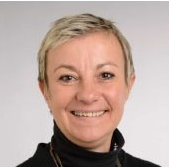
Marie-Catherine Vozenin
CHUV, SwitzerlandOrganizer of the 2nd FLASH Workshop
The research projects that I develop with my team aim at finding innovative tools able to protect normal tissue and enhance tumor control. In this context, we have developed a novel modality of radiation therapy called FLASH-Radiotherapy that minimizes normal tissue toxicity and eradicates tumors in various organs including the brain, lung and skin and in various species including mice, zebrafish, pigs and cats. Much of our recent work has focused on investigating the entirely different biological response induced after FLASH exposure. Importantly, we have worked to secure the translation of FLASH-RT into clinical trials for human patients with cancer.
Marie-Catherine Vozenin
CHUV, SwitzerlandOrganizer of the 2nd FLASH Workshop
Scientific Committee:

Ed Smith
The Christie, UKEd Smith
The Christie, UK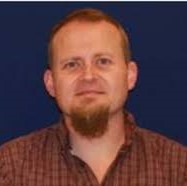
Claude Bailat
CHUV, UHDpulse, SwitzerlandClaude Bailat
CHUV, UHDpulse, Switzerland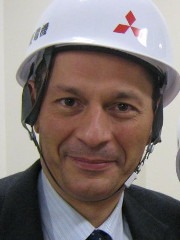
Marco Durante
GSI, GermanyCoordinator of International BioPhysics Collaboration
Prof. Dr. Marco Durante is Director of the Biophysics Department at GSI Helmholtz Center for Heavy Ion Research (Darmstadt, Germany) and Full Professor of Physics at the Technical University of Darmstadt. He is also Adjunct Professor of Physics at the University of Naples Federico II in Italy, and at the Gunma College of Medicine in Japan. Dr. Durante got his Ph.D. in physics in 1992 at the University Federico II and has worked as postdoc at the Lawrence Berkeley Laboratory (Berkeley, CA, USA), NASA Lyndon B. Johnson Space Center (Houston, TX, USA), and NIRS-QST (Chiba, Japan).
He is generally recognized as world leader in the field of particle radiobiology and medical physics and is co-author of over 400 papers in peer-reviewed scientific journals (h-index=50) and one patent on proton therapy (EU patent WO2013083333). He is currently chair of the ESA Life Sciences Advisory Group and of the ESA Topical Team on Space Radiation, vice-chair of the Particle Therapy Co-Operative Group (PTCOG), member of the technical-scientific Committee of the Italian Hadrontherapy Center (CNAO) and of the Program Advisory Committee of the GANIL (Caen, France), KVI (Groningen, The Netherlands), iThemba (South Africa), and Rez (Czech Republic) accelerators. Dr.
Durante was President of the International Association for Radiation Research (IARR) 2011-15, and is Associate Editor in several International scientific journals. He has received many grants to support his research, primarily by ESA, EU H2020, ERC, and BMBF.
Marco Durante
GSI, GermanyCoordinator of International BioPhysics Collaboration
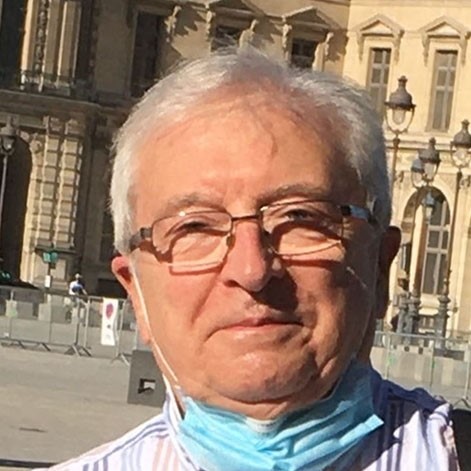
Vincent Favaudon
Institut Curie, FranceOrganizer of the 1st FLASH Workshop
Work Inserm U 1021-CNRS UMR 3347, Institut Curie, Building 110-112, Centre Universitaire, F-91405 Orsay (France). Tél. 33-(0)7-8532-7843 (vincent.favaudon@curie.fr).
Academic Degrees Higher Mathematics (Maths Sup) and Chemistry-Physics, Besançon University (1967). Masters: Biochemistry, University of Burgundy, Dijon (1968). Doctorate: National Museum of Natural History (Paris) & University of Burgundy (1970). PhD: Paris-VII University (1973), Kinetic studies of dismutation reactions of flavins in polar aprotic solvent; Magna cum laude with the congratulations of the jury
Appointments Teaching Assistant, Biochemistry Dept, University of Burgundy (1968-1969). Research Assistant, Laboratory of Biophysics, National Museum of Natural History, Paris. (1970-1977). Research Associate, Inserm U 219, Curie Institute, Orsay (1977-1991). Inserm Research Director (1988). Head of the Radiobiology Unit, Inserm U 350, Curie Institute, Orsay (1991-2003). Head of Inserm U 612, Curie Institute, Orsay (2004-2008). Emeritus Research Director, Inserm-Institut Curie (2010-Present).
Stays Abroad Post-doctoral fellowship, Fachbereich Biologie, Universität Konstanz, Germany (1974). Visiting Associate Professor of Pharmacology, Harvard Medical School, Dept of Pharmacology, Boston, USA (1983-1984).
Track record Spectroscopy, kinetics, thermodynamics. Haems & haemoproteins. Flavins & flavoproteins (1968-1977). Pulse radiolysis. Free radicals, oxygen activation. Structural biology (1975-19995). Antitumor drugs. Radiation biology. Experimental radiotherapy (1982-present).
Vincent Favaudon
Institut Curie, FranceOrganizer of the 1st FLASH Workshop
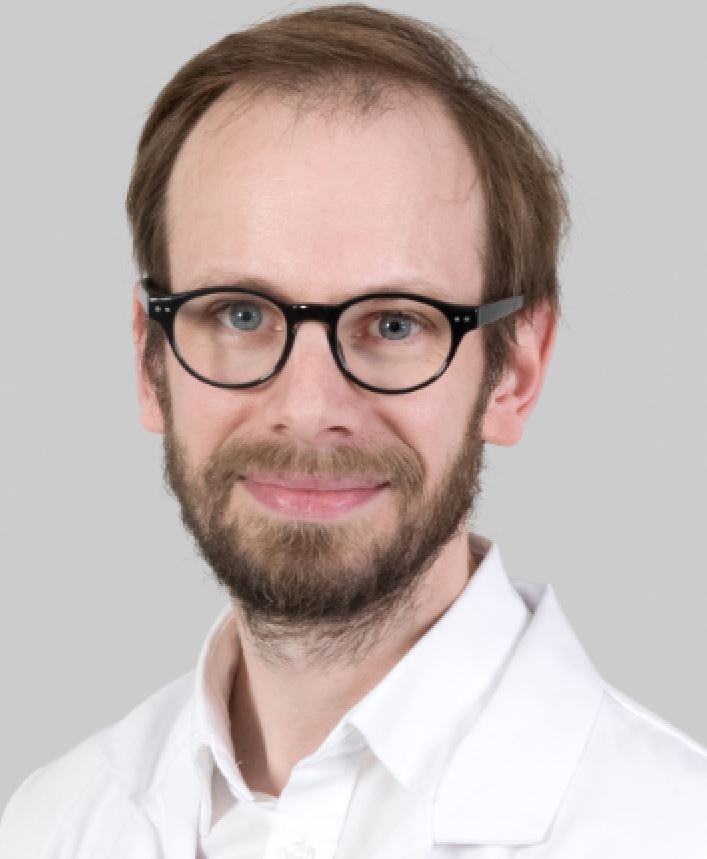
Charles Fouillade
Institut Curie, UHDpulse, FranceOrganizer of the 1st FLASH Workshop
Charles Fouillade is a radiation biologist studying the impact of radiotherapy on normal tissue. His work aims at i) deciphering the physiopathology of lung radiation toxicity and ii) understanding the molecular mechanisms of FLASH radiation therapy in the lung.
More info : http://orcid.org/0000-0003-2692-5645
Charles Fouillade
Institut Curie, UHDpulse, FranceOrganizer of the 1st FLASH Workshop
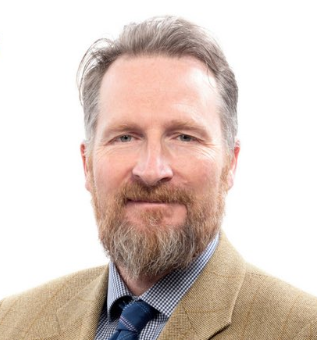
Ranald Mackay
The Christie, UKRanald Mackay
The Christie, UK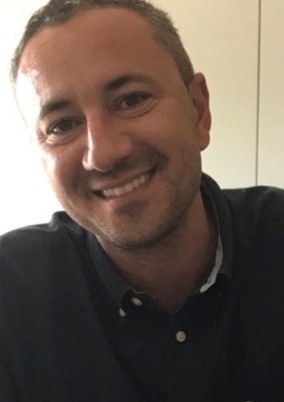
Francesco Romano
INFN, UHDpulse, ItalyDr Francesco Romano is Researcher at the Italian National Institute for Nuclear Physics. His expertise is on radiation dosimetry and Monte Carlo simulations for medical applications. His research activity is currently focused on ion beam microdosimetry and dosimetry for hadron therapy, FLASH radiotherapy and laser-driven ion beams. He is Honorary Lecturer at the Queen’s University of Belfast and University of Surrey in UK.
Francesco Romano
INFN, UHDpulse, Italy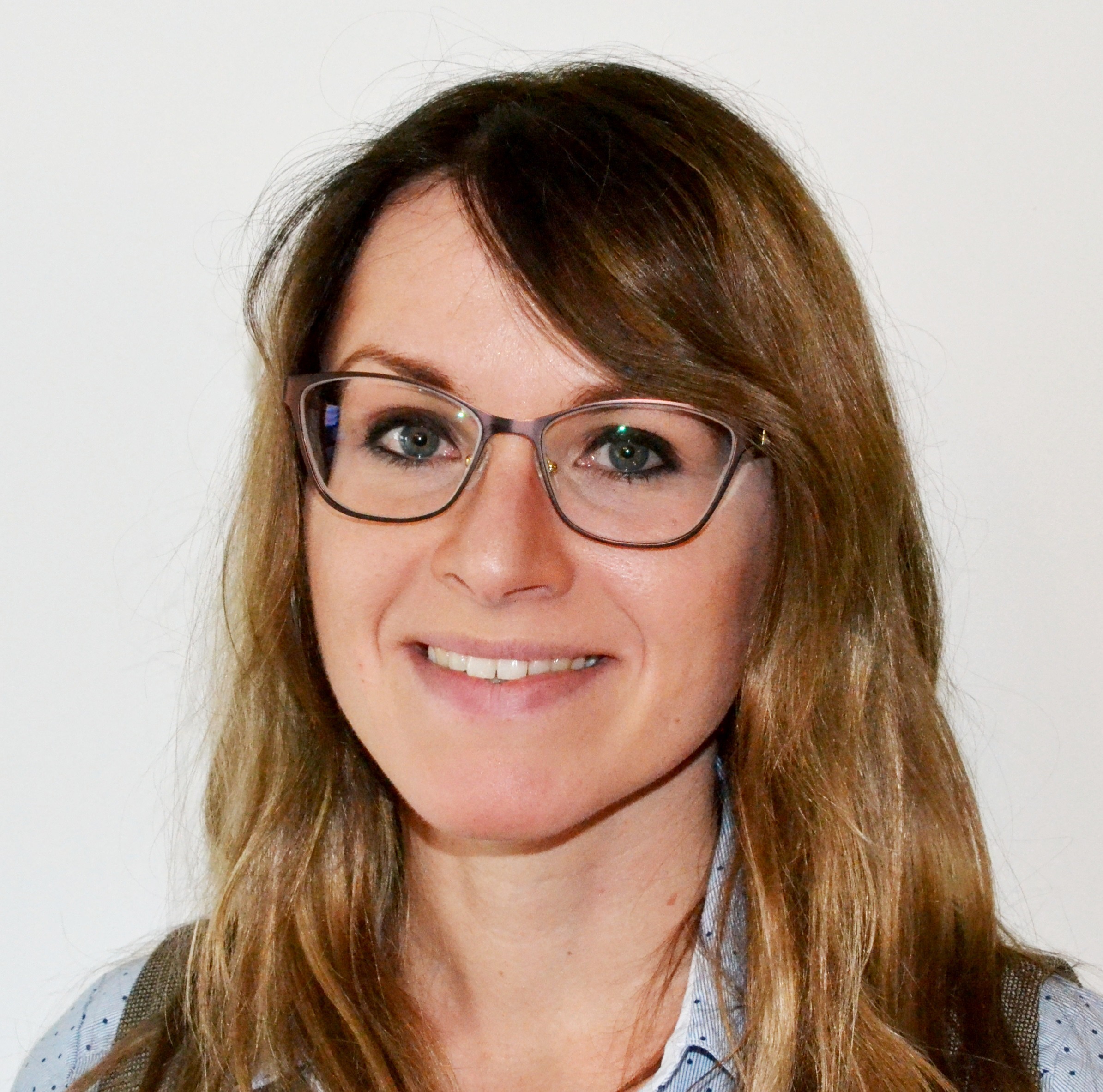
Anna Subiel
NPL, UHDpulse, UKDr Anna Subiel is Senior Research Scientist at the UK’s National Metrology Institute, National Physical Laboratory, carrying out research work in the area of radiation dosimetry. She is leading a number of research activities in the UK, including developments of metrology for advanced radiotherapy with ultra-high dose rates, which involve very high energy electrons, laser-driven beams and FLASH radiotherapy sources. She is also an Honorary Lecturer at UCL Research Department of Oncology.
Anna Subiel
NPL, UHDpulse, UKInternational Advisory Board:
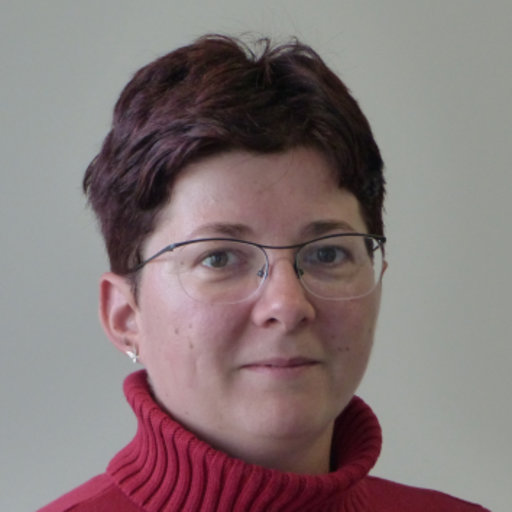
Elke Beyreuther
HZDR, GermanyDr. Elke Beyreuther finished her study on Applied Natural Sciences with a Diploma in 2005 and moved to Helmholtz-Zentrum Dresden-Rossendorf for PhD studies dealing with radiobiological cell studies at various radiation sources. After receiving her PhD in 2010 she became a scientist at HZDR/OncoRay focussing on small animal in vivo experiments with protons and on the investigation of radiobiological effects of ultra-high dose rates. This includes radiobiological studies at a clinical cyclotron as well as at different research accelerators and laser driven particle beams.
Elke Beyreuther
HZDR, Germany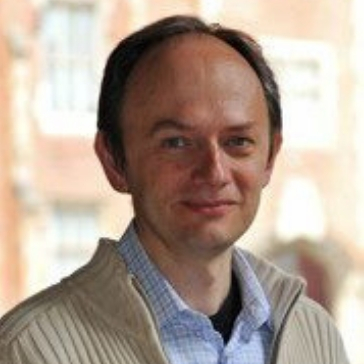
Marco Borghesi
Queen's University Belfast, UKMarco Borghesi is Professor of Plasma Physics at the Queen’s University of Belfast, where he is employed as an academic since 1999, and he is the director of the Centre for Plasma Physics since 2017. After undergraduate studies in Italy (Laurea in Physics at Pisa University, and PGDip in Optical Technologies at AILUN, Nuoro), he obtained a PhD in Plasma Physics at Imperial College London in 1998. His research interests lay in the area of intense laser-plasma interactions, with particular expertise in laser-driven acceleration of ion beams. He has led as PI large UK-wide EPSRC projects such as LIBRA (Basic Technology, 2007-12) and more recently A-SAIL (Programme Grant, 2013-20), aimed to the advancement of laser-ion acceleration towards future medical applications. Within these projects, he has provided key contributions to the development of innovative ion acceleration schemes, and of ultra-high dose-rate radiobiology applications employing laser-driven ions. He received in 2017 the APS John Dawson Award for Excellence in Plasma Physics Research for pioneering applications of proton radiography in high-energy density plasma.
Marco Borghesi
Queen's University Belfast, UK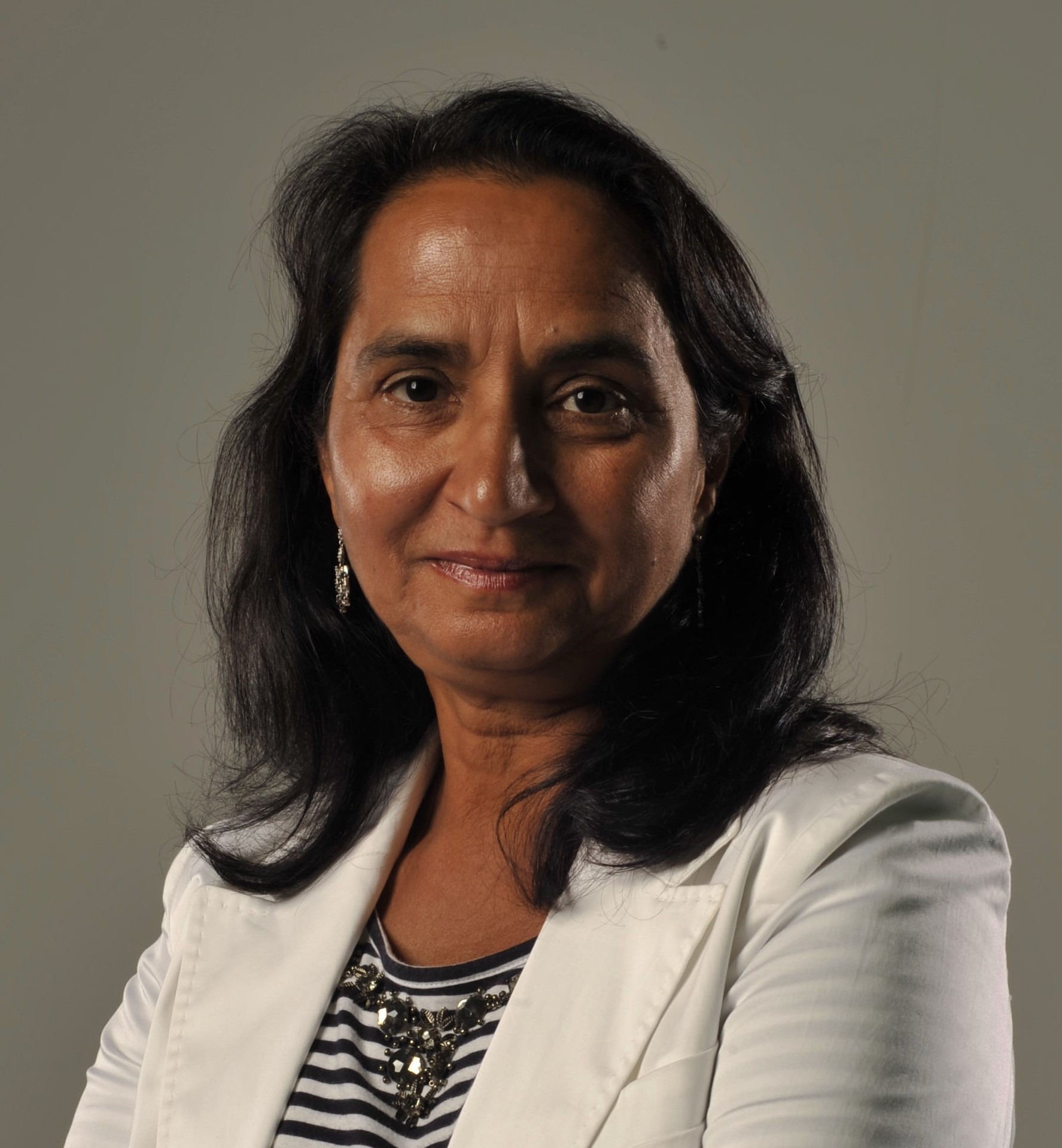
Manjit Dosanjh
CERN, SwitzerlandEuropean Organization for Nuclear Research (CERN), Switzerland University of Oxford, UK
Manjit Dosanjh is the Project Leader for STELLA (Smart Technologies to Extend Lives with Linear Accelerators), honorary CERN Staff, the particle physics laboratory in Geneva, Switzerland and Visiting Professor at the University of Oxford. She holds a PhD in Biochemical Engineering from the UK and her professional efforts in the fields of biology and the medical applications of physics span more than 30 years, during which she has held positions in various academic and research institutions in Europe and the U.S., including the Massachusetts Institute of Technology, the Lawrence Berkeley National Laboratory at the University of California, the European Commission Joint Research Centre in Italy. Dosanjh joined CERN in 1999 where she has worked to apply technologies originally developed for particle physics to the domain of life sciences, aiming to translate and transfer knowledge about physics to society at large. She is also actively involved in helping non-profit health, science education and gender related organisations in Geneva.
Manjit Dosanjh
CERN, Switzerland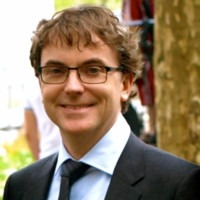
Sebastien Incerti
CNRS, FranceSébastien Incerti is Director of Research at the National Center for Scientific Research (CNRS) and the National Institute of Nuclear and Particle Physics (IN2P3), in France. He is involved in the development of the open source Geant4 Monte Carlo toolkit (http://geant4.org) for the simulation of particle-matter interactions, and his research activities focus on the study of the biological effects of ionizing radiation in several application areas, including medical physics and space sciences, in particular for the Geant4-DNA project (http://geant4-dna.org). He is currently IN2P3 Scientific Director for interdisciplinary science.
Sebastien Incerti
CNRS, France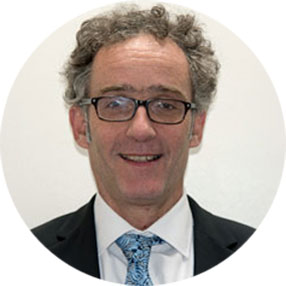
Michael Krisch
ESRF, FranceMichael Krisch
ESRF, France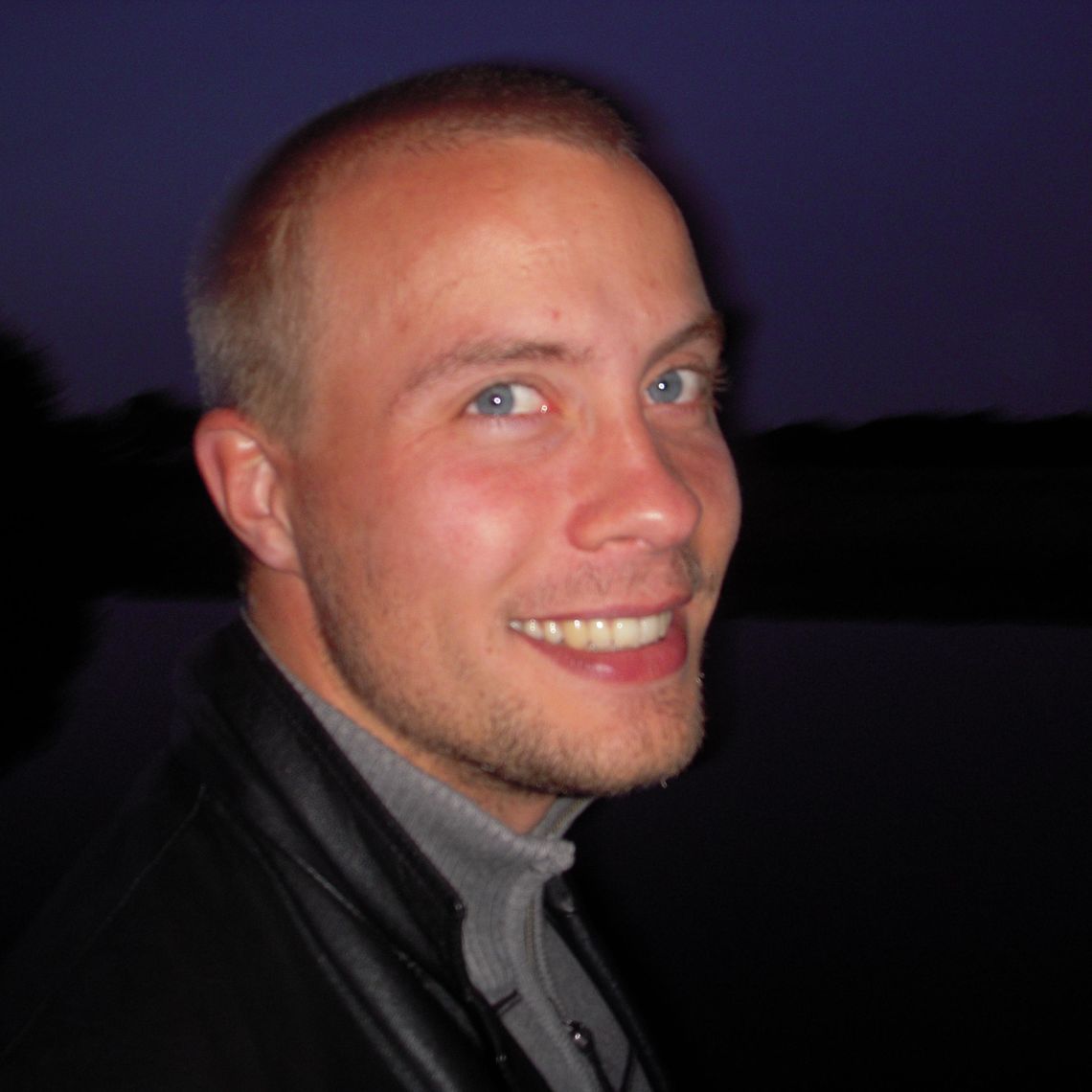
Kristoffer Petersson
University of Oxford, UKKristoffer Petersson
University of Oxford, UK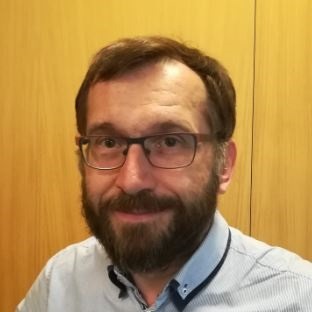
Rudi Labarbe
IBA, BelgiumSenior Research Scientist at IBA with over 20 years of experience in product development in multinational companies.
I graduated at the university of Liège in Belgium with a PhD in physical chemistry. I now work in the research group at IBA and I have a special interest for FLASH proton therapy. I manage different research collaborations in medical technology between IBA, universities and research institutions. I also act as a community co-manager of the open source software platform for proton therapy: https://openpath.software/
Rudi Labarbe
IBA, Belgium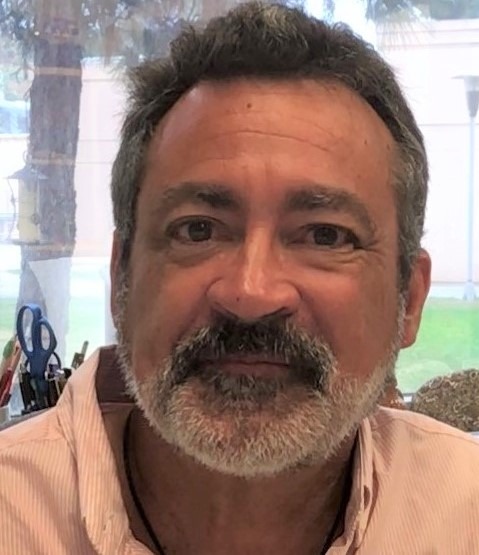
Charles Limoli
University of California, USAOne of the main goals of my research program is to advance FLASH radiotherapy from the bench to the clinic. To this end, we have been successful in obtaining NCI funding for a program project grant aimed to characterize this novel irradiation modality that challenges some of the most fundamental tenets in radiobiology. FLASH radiotherapy is able to achieve remarkable improvements in therapeutic gain through ultrahigh dose rate (≥ 100 Gy/s) delivery. My team that includes Marie-Catherine Vozenin at the CHUV in Switzerland, Bill Loo at Stanford University, Peter Maxim at Indiana University and Doug Spitz at the University of Iowa have generated data in support of several mechanisms, of which one involves a mechanism that minimizes radiation-induced oxygen toxicity and exploits the differential redox biology between tumors and normal tissue. While tumor cure is iso-efficient between FLASH and conventional dose rate modalities, FLASH induces transient and radioprotective hypoxia that affords significant sparing of normal tissue injury in the brain (and throughout all other organs analyzed). Collectively, my research strives to generate the requisite data necessary to facilitate the rapid implementation of this innovative irradiation platform, using both electron and X-ray beams, into the clinic.
Charles Limoli
University of California, USA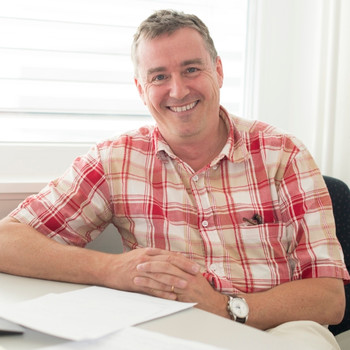
Tony Lomax
PSI, SwitzerlandTony Lomax
PSI, Switzerland
Alejandro Mazal
Quirónsalud Proton Therapy Center, SpainBorn in Argentina in 1958, close to Iguazu Falls, I first studied engineering followed by medical physics in Buenos Aires, where I have also worked at the National Academy of Medicine. In 1985 I moved to Paris. At the Universities of Toulouse and Paris I took a master and PhD degree in medical physics (dealing with stereotactic radiation therapy) and I then got a permanent position at Curie Institut under the direction of Jean Claude Rosenwald. In 1990 we started the protontherapy project in Orsay, where I was appointed as technical director covering the medical physics and engineering fields for about 8 years. I took some sabbaticals in US, at Indiana University Cyclotron Facility and at Massachusetts General Hospital & Harvard Medical School as invited scientist. In 2005 I have been in charge of the call for bids for the new protontherapy project in Orsay as the project director, in 2008 named head of medical physics at Curie Institute and in 2010 I have been elected as Chairman of the Particle Therapy Cooperative Group (PTCOG). In 2019 I moved to Madrid, as head of medical physics for the proton project of Quironsalud in Madrid, and in charge of R&D in medical Physics. We treat the first Spanish patient with protontherapy, and also the first in the Spanish speaking countries in the world, in December 2019.
Alejandro Mazal
Quirónsalud Proton Therapy Center, Spain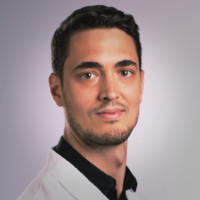
Pierre Montay-Gruel
University of California, USAPierre Montay-Gruel
University of California, USA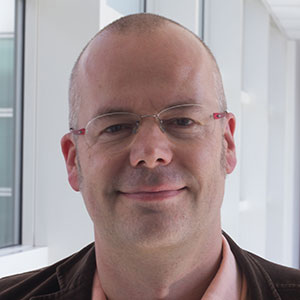
Hugo Palmans
MedAustron, AustriaHugo Palmans
MedAustron, Austria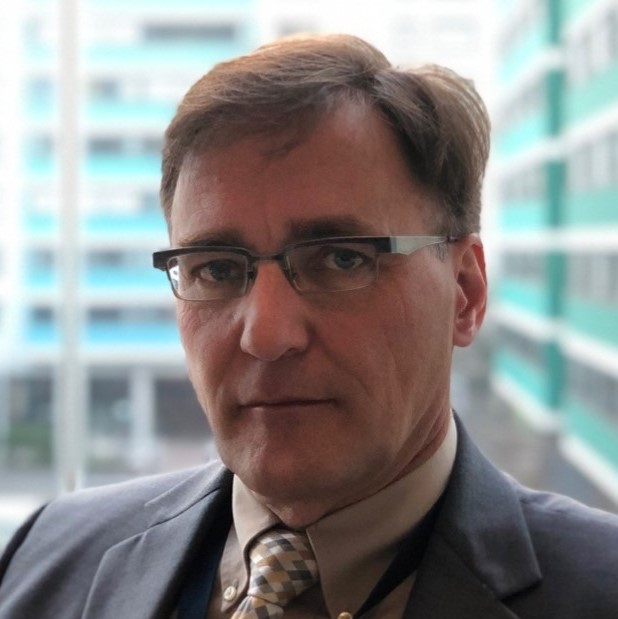
Harald Paganetti
Harvard Medical School, USADr. Harald Paganetti is the Director of Physics Research at the Department of Radiation Oncology at Massachusetts General Hospital and a Professor of Radiation Oncology at Harvard Medical School. He received his PhD in experimental nuclear physics in 1992 from the University of Bonn, Germany, and has been working in radiation therapy research on experimental as well as theoretical projects since 1994. He has authored and co-authored more than 250 peer-reviewed publications with an h-index of 66. He is renowned particularly for his work on proton therapy and has edited three books on Proton Therapy. His main interests are computer simulations and bio-mathematical modeling of physical and biological properties of radiation fields. Dr. Paganetti has been awarded numerous research grants from the National Cancer Institute. He serves on the editorial board of 'Physics in Medicine and Biology' and is a member of the National Council on Radiation Protection and Measurements (NCRP). Furthermore, he serves on various task groups and committees for associations such as the American Association of Physicists in Medicine (AAPM) and the American Society for Radiation Oncology (ASTRO). For example, he has been the Physics Track Chair for the annual ASTRO meeting from 2015-2018 and the Program Director for the annual AAPM meeting 2011-2012. In 2013 he was awarded the 'A. Clifford Barger Excellence in Mentoring Award' by the Harvard Medical School for his efforts to mentor junior researchers.
Harald Paganetti
Harvard Medical School, USA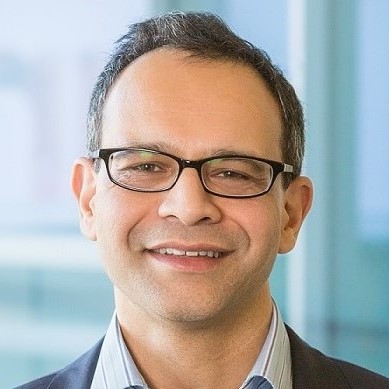
Ricky Sharma
Varian, USARicky Sharma is a physician scientist leader of medical research at Varian Medical Systems. In addition to his role as Vice President of Clinical Affairs at Varian, he is an Honorary Clinical Professor at University College London and an Honorary Consultant in Clinical Oncology at University College London Hospitals, where he is a clinical oncologist.
Over the past decade, Prof Sharma has led practice-changing international clinical trials and global initiatives to bring stakeholders together to improve combination treatments for patients with cancer.
Ricky Sharma
Varian, USA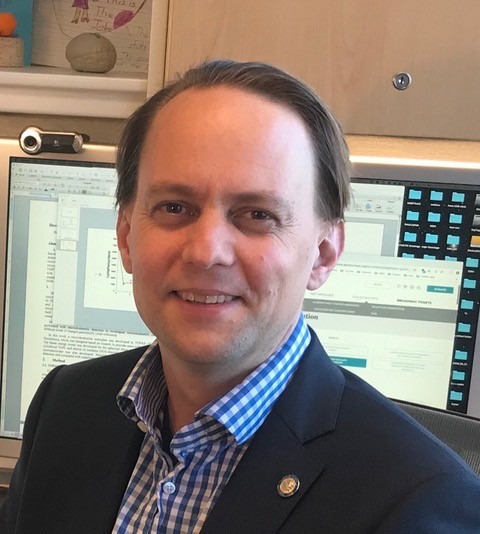
Jan Schuemann
Harvard Medical School, USADr. Jan Schuemann is an Associate Professor within the department of Radiation Oncology at Massachusetts General Hospital and Harvard Medical School. Dr. Schuemanm is the Head of the Multi-Scale Monte Carlo Modeling Lab. His research focuses on understanding radiobiology from first principles. He is the PI of the TOPAS-nBio project, a nanometer scale extension of TOPAS, that simulates the physical and chemical damage induction and following repair kinetics.
Dr. Schuemann’s lab applies mechanistic models in the design and analysis of our experiments. Currently, he leads the MGH efforts investigating the potential in vivo healthy tissue sparing effects for FLASH proton irradiations.
Jan Schuemann
Harvard Medical School, USA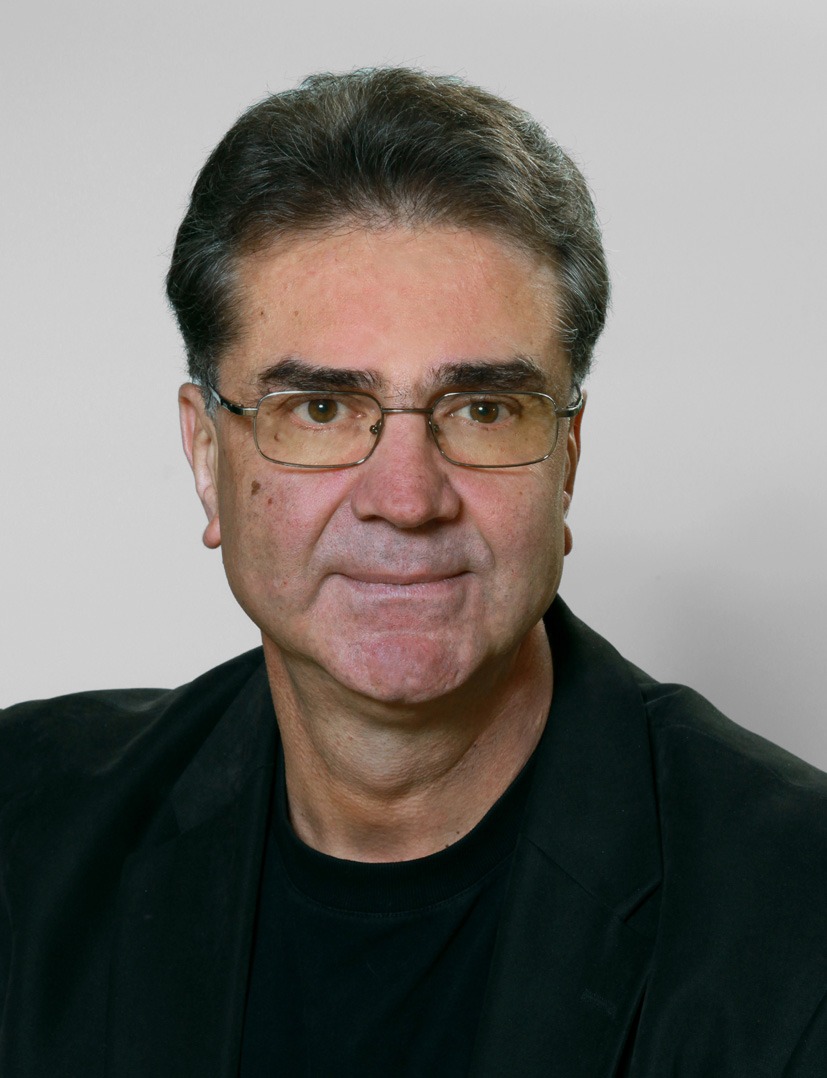
Valentin Djonov
Institute of Anatomy, Berne, SwitzerlandProf. Valentin Djonov, Chair Institute of Anatomy, Berne, Switzerland
Research interest: microbeam radiation therapy (MRT). MRT follows a different paradigm of radiation tissue interactions. In parallel to the excellent tumor control, normal tissues show a remarkably high tolerance to MRT.
Valentin Djonov
Institute of Anatomy, Berne, Switzerland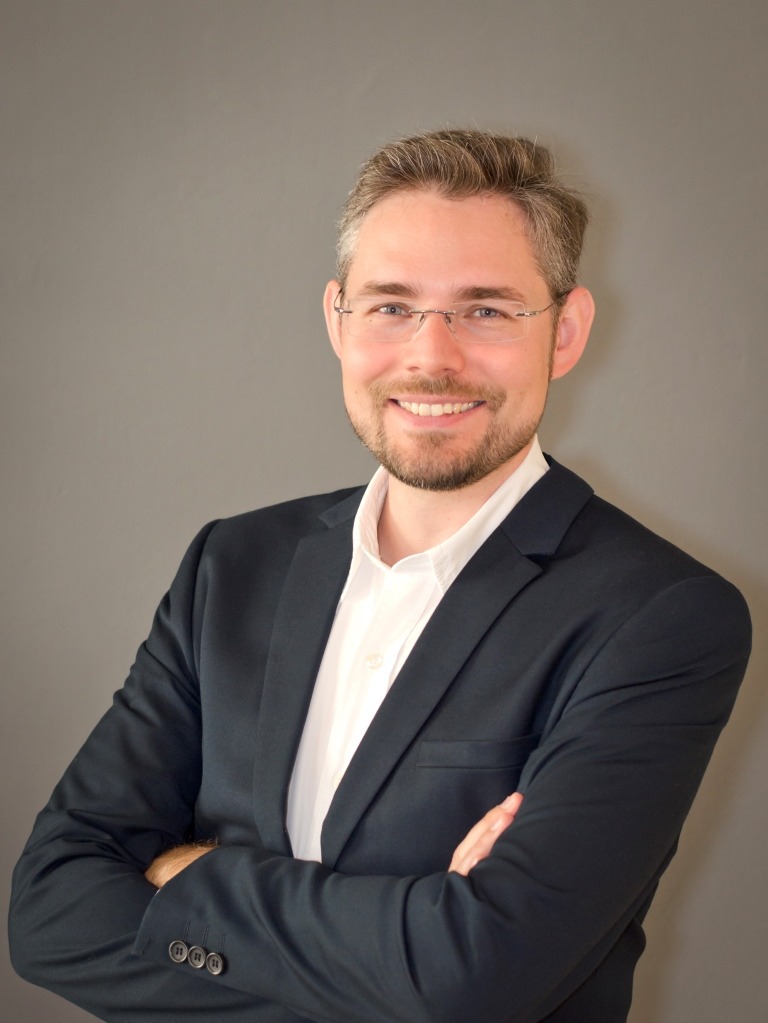
Claus Stefan Schmitzer
MedAustron, AustriaClaus Schmitzer is an accelerator technology engineer who was with the MedAustron project from very early stages on and accompanied the institution from architecture and layout phase up until successful patient treatment. He studied technical Physics at the Vienna University of Technology and graduated 2009 in experimental quantum optics. For his PhD he focused on plasma physics for ion source design in collaboration with CERN and spent 3 years working on Linac4 and SPL H- ion sources. In 2012 he joined the MedAustron project as a work package leader for the development and construction of synchrotron RF systems. Later he lead the Physics group including injector RF systems and ion sources. Since 2019 he supervises developments for all RF systems, vacuum systems, ion sources and beam instrumentation devices and represents MedAustron in several international collaborations.
